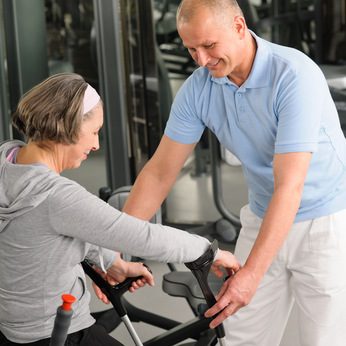A number of years ago, I applied for a job as a personal trainer in a gym. During my interview with the manager, he called me “book smart.” It wasn’t a compliment, since he was suggesting that I only knew the information in books, and that what really mattered was a person’s experience. “We really want someone who has been doing this for a while,” he said, before sending me on my way. Ouch. I left the interview frustrated, because it seemed as if my education precluded the gym manager from seeing what I could do. Or perhaps I hadn’t shown him. I had not yet proved to him that I was more than just book smart, that I could actually use my education to train someone to get fit and lose weight.

Knowledge alone is not power. One must be able to apply the knowledge one has. This is where a formal education fails us. I have met many brilliant scientists who have no idea how to train someone. (I once spoke to the scientist who studied cyclist Lance Armstrong for years in his laboratory at the University of Texas, and when I asked him about Lance’s training, he acted like a deer caught in headlights.) Universities do a great job of supplying us with knowledge, but a poor job of showing how to apply that knowledge. That part is up to us to learn on our own.
Too much of the knowledge gained from the great research done by my academic colleagues remains in academic circles, never reaching the fitness professional or the general public. Academic conferences are nothing more than scientists communicating their research to other scientists. Scientists need to do a better job at communicating the results of their research to the people who can benefit from it and showing them how to use it, and fitness professionals need to do a better job at acquiring and applying the education. It is not enough to know how muscles contract; we need to know how to design and administer resistance workouts to help our clients’ muscles get stronger and look better. It is not enough to know how the heart works; we need to know how to design and coach workouts to help our clients’ improve their cardiovascular systems.
Wouldn’t it be great if all fitness professionals were required to have an education that consists of book knowledge and practical knowledge? The latter can be obtained from “rotations” akin to those in medical school. We would all spend a couple of years taking the science courses and then do rotations in health clubs like medical students do in hospitals, to learn how to work with different populations and conditions. Upon graduation, we either become a fitness general practitioner or choose a specialty. I choose running. But you already knew that.
Reprinted with permission from Jason Karp.
Jason Karp is the creator of the REVO2LUTION RUNNING certification, 2011 IDEA Personal Trainer of the Year, and recipient of the 2014 President’s Council on Fitness, Sports & Nutrition Community Leadership Award. A PhD in exercise physiology, he has more than 200 publications, mentors fitness professionals, and speaks around the world. His sixth book, “The Inner Runner”, is available in bookstores and Amazon. Visit his website, Run-Fit.com

